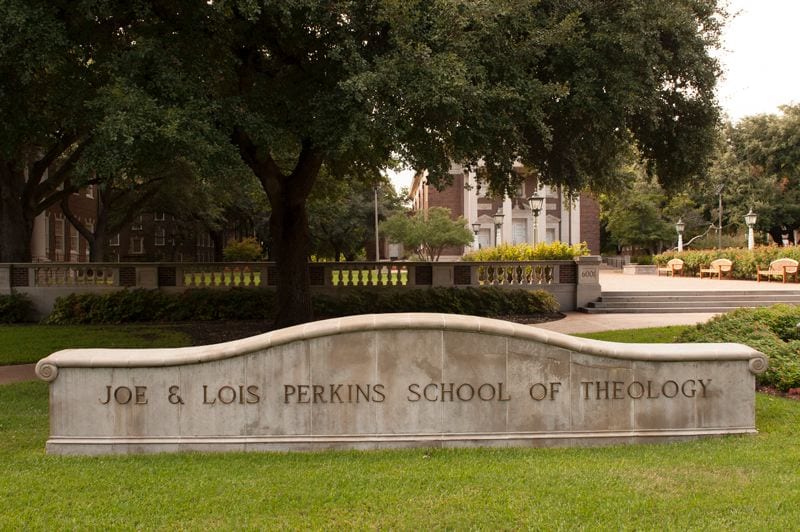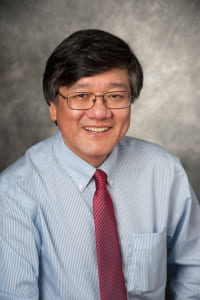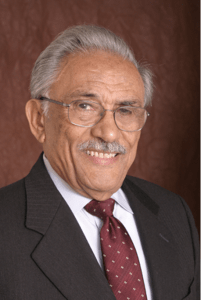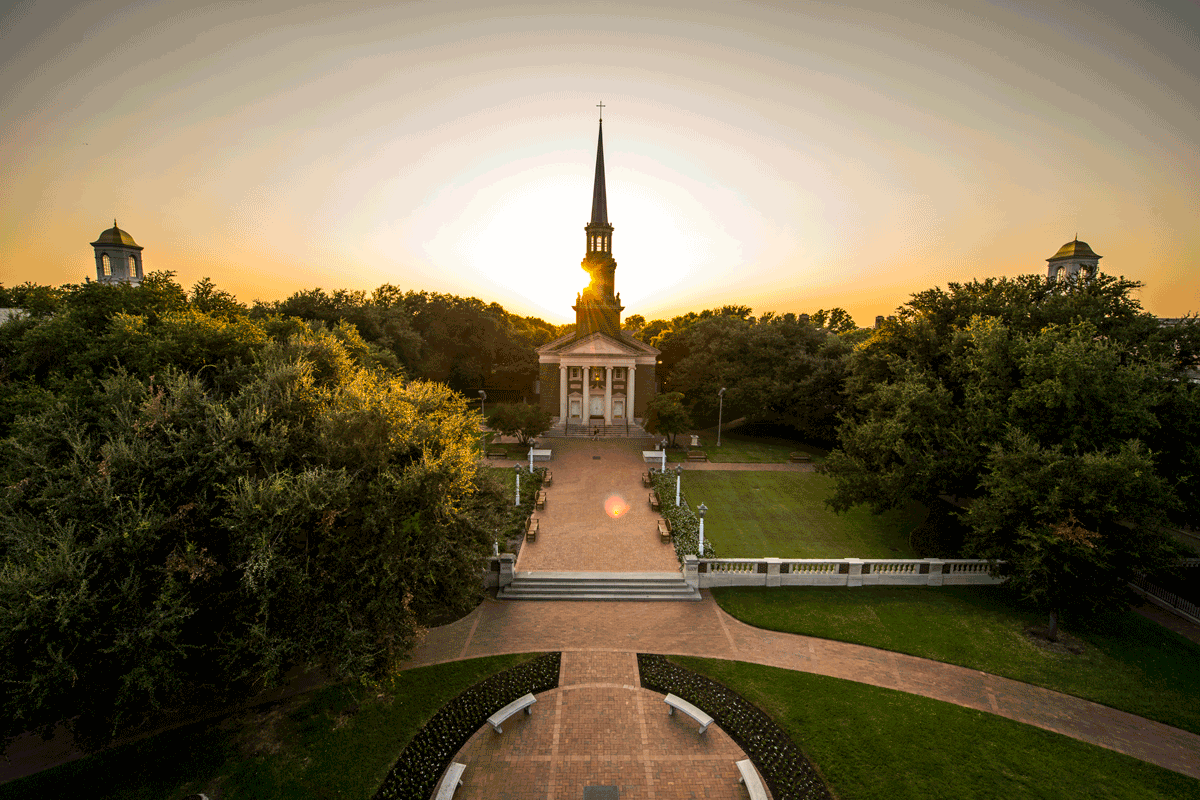After a series of losses, Dr. Angela Williams Gorrell discovered true joy in an unexpected place: a Bible study for a group of incarcerated women.
 Gorrell, the author of The Gravity of Joy: A Story of Being Lost and Found, will share her insights in the keynote lecture at the upcoming Perkins Summit for Faith and Learning, March 25-26 at the Dallas campus of Perkins. She will also teach two half-day courses during the event.
Gorrell, the author of The Gravity of Joy: A Story of Being Lost and Found, will share her insights in the keynote lecture at the upcoming Perkins Summit for Faith and Learning, March 25-26 at the Dallas campus of Perkins. She will also teach two half-day courses during the event.
Gorrell joined Baylor’s George W. Truett Theological Seminary in 2019 as assistant professor of Practical Theology. Previously, she was an associate research scholar at the Yale Center for Faith & Culture, working on the Theology of Joy and the Good Life Project, and a lecturer in Divinity and Humanities at Yale University in New Haven, Connecticut.
Gorrell previewed her program in a conversation with Perkins Perspective; here are excerpts.
Q. How do you define resilient joy?
Gorrell: Joy is modifiable in a way that very few other emotions are. There’s healing joy, exuberant joy, sobering joy. Resilient joy is an act of resistance against despair. It’s the decision to rejoice, to look for things that are meaningful, truthful, beautiful and good in the world and to choose to rejoice over them.
Q. What does it mean to cultivate communities of resilient joy?
Gorrell: It’s about helping communities to realize why joy is a worthy thing to look for and be open to. I hesitate to use the word “work,” by the way. I don’t want joy to be about trying harder. Joy is about opening your hands, opening your hearts, opening your eyes and mind to what is around you. It’s important for communities to become open to and look for meaning, truth, goodness, beauty, and connection with others, because these are the things that make life worth living
Q. Are there ways that communities might discourage or hinder that joy?
Gorrell: The obstacles to joy are anger and fear, entitlement, or the idea of “more” or “better.” If a community is nurturing those, that community is obstructing joy. Christian communities don’t tend to nurture emotions like anger or fear, but they also don’t help people to work through those feelings in constructive ways. They usually don’t help people to constructively work through their anger, or to help people to think about where God is in their fear, or to help people to think about why the idea of “better” or “more” gets in the way of their contentment.
Q. Many institutions, including churches, tend to subtly tell people, “Don’t have feelings like anger or fear. Just push them away.” That’s not helpful.
Gorrell: Every feeling is a teacher. There’s wisdom there if you’ll unearth it. If you’re angry, your body is signaling to you that something is wrong. Something’s off. Something needs to be made right. If you’re fearful, your body is signaling to you that you can’t be yourself. You can’t trust people around you. You’re feeling unsafe. Your body is teaching you something.
Oftentimes, in Christian communities, we don’t see feelings as teachers. Instead, we tend to say, “Just stop being angry. You need to let that go.” Instead of saying, “What’s happening here?” For people to feel emotions, whether it’s anger, fear, joy, or anything else, they need permission from other people and from themselves. Christian communities can be spaces where people have permission to feel.
Q. What does a community of resilient joy look like?
Gorrell: Communities of resilient joy are spaces without shame. They are places where people are seen and heard, where they participate fully. They are not places where just one person talks all the time; there’s a dynamic, participatory nature. Everyone has a voice, everyone participates, and everyone has a place. They are places of belonging. Finally, communities of resilient joy are regularly engaged in gateways to joy — habits that become ways of posturing for joy, such as hope, lament, gratitude and truth telling.
Q. Can you share an example of a community of resilient joy, and what that looked like?
Gorrell: In 2016, eight months into a job at Yale university working on The Theology of Joy Project, I lost three family members in the space of four weeks. One to suicide at age 30, a nephew who died of sudden cardiac arrest at age 22, and five days later, my dad died of organ failure due to opioid use. I spoke at all three of their funerals. I found myself back at Yale, trying to study joy, and thinking, “Wow, this is really shallow work in a world that’s suffering.” For more than a year, I really struggled to find my work relevant in a world that was suffering.
Then, at the invitation from someone at church, I became a volunteer chaplain at a women’s prison.
For a year, almost every Wednesday night, I met with these women. Some were on suicide watch. Most were in prison for substance use related issues. In that room in the prison, I began to see what joy was. My book, The Gravity of Joy, is the story of how being part of that community of resilient joy recovered my faith. In that room, there was no shame. These women humanized one another. There was lament, there was hope, there was rejoicing. There was a search for meaning. There was an honesty about anger, about fear. It changed my whole life.
One night we were singing “This Little Light of Mine” really passionately. Normally, the lyrics are, “This little light of mine/I’m going to let it shine.” That night, somebody added, “All up in this place, I’m going to let it shine.” We started to make up our own lines. The more that we did this, the freer we got with the song. One night we were literally dancing. Everyone was jumping up and down and singing loudly and clapping. One of the women used the window seal as a drum, to create a rhythm line. There were tears and laughing. It was so loud that one of the corrections officers came into the room. I got nervous because sometimes the corrections officers would shut the meeting down for any number of reasons. Instead, she started joining us, clapping and singing. When we finished, she said, “Wow! There is some joy in this room tonight!”
To me, that moment represents how, even in the midst of really difficult circumstances — of confinement, of dehumanization, of pain — even in the midst of all of that, somehow people can rejoice together. Freedom can happen, against the odds.























